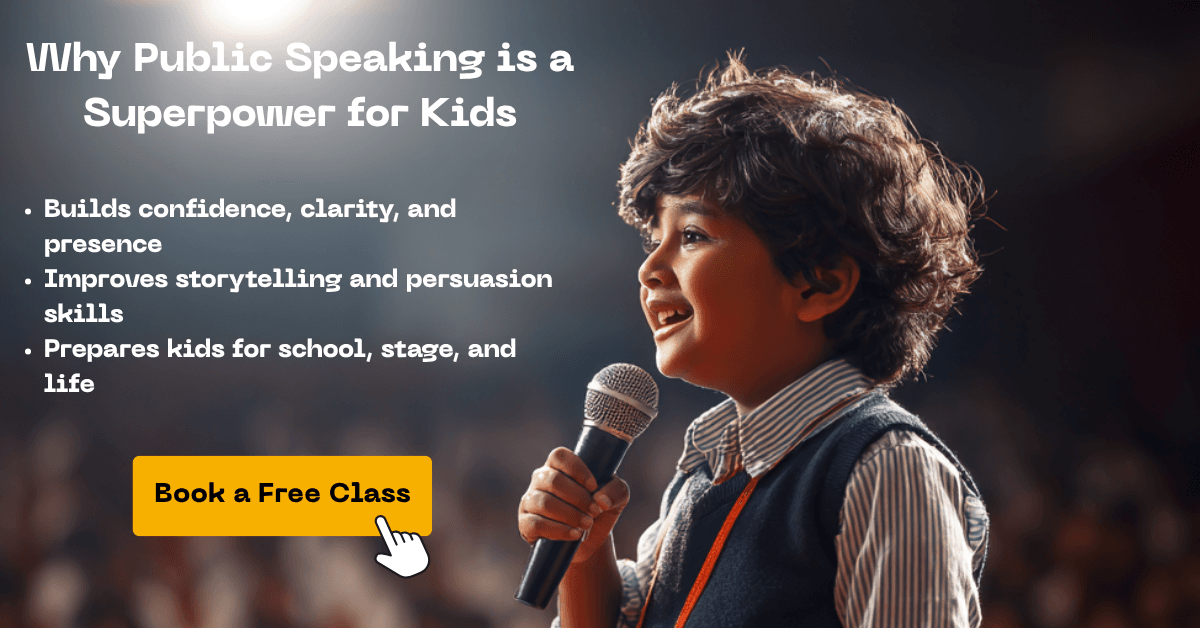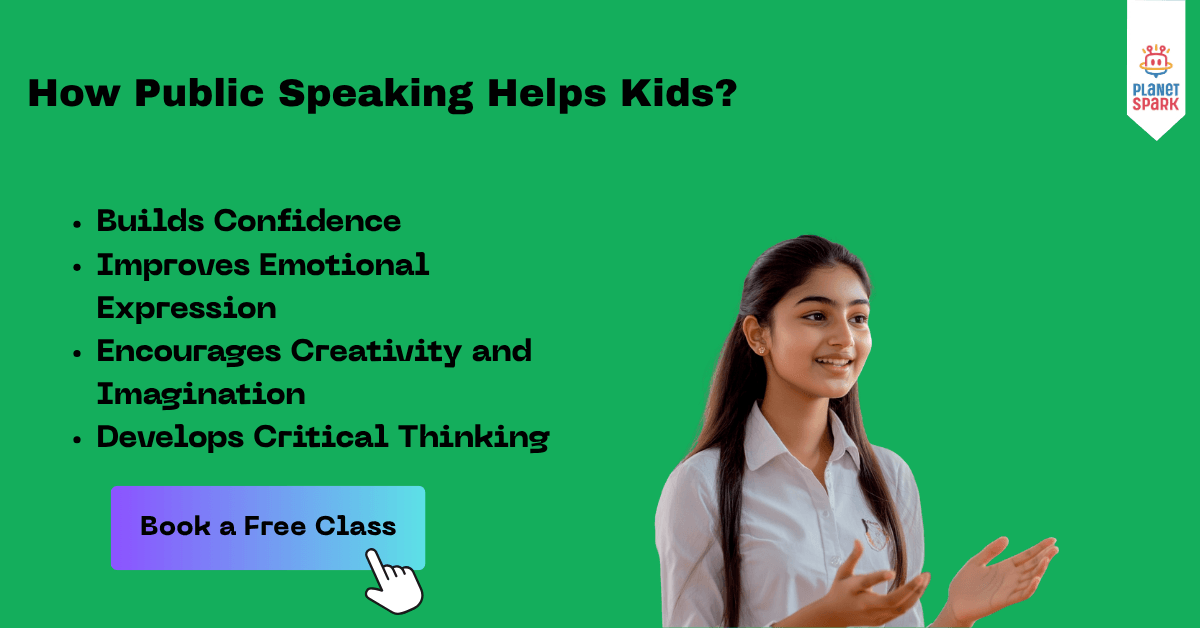Artificial Intelligence: Speech on AI as Friend or Foe
Last Updated At: 5 Nov 2025
10 min read

Table of Contents
- Understanding Artificial Intelligence and Its Growing Influe
- How Artificial Intelligence Works and Why It Feels Powerful
- Artificial Intelligence as a Friend: Benefits and Advancemen
- Artificial Intelligence as a Foe: Risks, Fears, and Ethical
- The Future of Artificial Intelligence: Balanced, Responsible
- Why Choose PlanetSpark to Build Future Public Speakers
Artificial Intelligence has become one of the most influential technologies shaping our world, leading students to question whether AI is ultimately a friend or a foe. This speech-style explanation introduces what artificial intelligence is, how AI technology works, and the impact it has on human life. It guides readers through the advantages, risks, and ethical considerations that make the debate around AI so important today.
Understanding Artificial Intelligence and Its Growing Influence
Artificial Intelligence is the capability of machines to perform tasks that normally require human intelligence. These tasks include recognising speech, solving problems, analysing data, learning patterns, and making decisions. With the rise of advanced AI systems, automation, and algorithms that can mimic human thinking, the question of whether AI acts as a friend or foe becomes increasingly relevant.
AI is everywhere, from smartphones and navigation systems to virtual assistants and automated cars. This presence shapes human behaviour and influences how society operates. As more people inquire What is artificial intelligence? And what is AI doing in daily life? The discussion becomes essential for students, professionals, and policymakers.
AI’s influence can be seen in several areas. It supports scientific breakthroughs by analysing massive data. It helps doctors with medical diagnoses, assists teachers with personalised learning, and improves business decisions through predictive analytics. AI technology speeds up tasks that used to take hours or even days. As a result, industries become faster, smarter, and more efficient.
However, this rapid adoption introduces concerns as well. AI raises questions about privacy, job replacement, ethical decision-making, and misuse. For students preparing a speech on artificial intelligence, understanding these layers helps them present a balanced, thoughtful perspective. AI is not just a technology; it is a force shaping the future of humanity.

How Artificial Intelligence Works and Why It Feels Powerful
To understand the friend-or-foe debate, students must first understand how AI technology functions. AI is built on algorithms, step-by-step instructions that guide machines in performing tasks. With machine learning and deep learning, AI systems analyse data, learn patterns, and improve their performance without human intervention. This ability makes AI seem intelligent, although it does not possess emotions or consciousness.
AI’s power lies in three core components that fuel its capabilities:
1. Machine Learning Techniques
Machine learning enables AI to learn from data. When an AI system is trained on images, texts, or numbers, it discovers patterns and makes predictions. Students can imagine this as teaching a system through repeated examples until they understand what to do. Applications of machine learning include spam filters, recommendation systems, and voice recognition.
2. Supervised and Unsupervised Learning
Supervised learning teaches AI using labelled information, while unsupervised learning lets the system find patterns independently. These methods are important because they determine how accurate and efficient the AI becomes. Both are widely used in applications that answer questions, analyse behaviours, or sort information.
3. Neural Networks and Deep Learning
Neural networks mimic the human brain by processing information through interconnected nodes. Deep learning, an advanced version of this, helps AI recognise images, identify speech patterns, and even perform translations. This capability is why AI can identify faces or understand spoken commands.
Deep learning makes AI more capable, but it also raises concerns about privacy, bias, and transparency.
4. Data Processing and Automation
AI depends heavily on data. The more data it receives, the smarter and more accurate it becomes. Automation emerges when AI uses this data to make decisions independently. Automated systems reduce human error and increase speed, but if misused, they can cause errors on a large scale.
5. Decision-Making and Predictive Power
AI uses algorithms to predict outcomes, such as traffic patterns, weather changes, or customer preferences. Predictive power allows industries to optimise resources and save time. But it also creates dependency, making humans rely heavily on technology for even simple tasks.
Give your child the stage power to present complex topics confidently, Enrol now!
Artificial Intelligence as a Friend: Benefits and Advancements
Supporters of AI argue that artificial intelligence improves life, supports innovation, and solves problems humans cannot solve alone. When used responsibly, AI becomes a powerful friend that enhances human abilities and opens opportunities.
AI helps students learn better through personalised learning apps. It supports disabled individuals with assistive technologies like voice-to-text systems. In science, it speeds up research in medicine, climate studies, and robotics. Healthcare professionals use AI to detect diseases early by examining medical images more accurately than humans. Businesses automate repetitive tasks to save time and reduce errors, while researchers use AI to track pollution, predict earthquakes, and fight cybercrime.
Artificial intelligence also improves communication through translation tools, chatbots, and smart assistants. It helps students prepare speeches, understand concepts, and access information instantly. For many people, AI represents progress, efficiency, and a smarter future.
However, even as a friend, AI must be managed with care. Companies and governments need clear rules to ensure AI tools are safe, fair, and ethical. The friendliness of artificial intelligence depends on the responsibility of the humans who design and use it.
Artificial Intelligence as a Foe: Risks, Fears, and Ethical Concerns
While artificial intelligence brings tremendous progress, it also introduces challenges that can affect individuals, industries, and global societies. As AI technology becomes more advanced, many people fear losing control over systems that grow smarter every day. These concerns make the debate “Artificial Intelligence: Friend or Foe?” even more relevant for students, educators, and future leaders.
One major concern is job displacement. Automation powered by AI can perform tasks faster and cheaper than humans, which may lead to a reduction in employment, especially in repetitive or analytical job roles. Another issue is privacy. AI systems collect massive amounts of data, sometimes without clear user consent. Facial recognition, behavioural tracking, and predictive algorithms have raised serious global discussions on data safety.
AI also raises moral concerns. When machines make decisions, who is accountable if something goes wrong? For example, when a self-driving car faces an unavoidable accident, how does it decide which direction is least harmful? These ethical dilemmas show that artificial intelligence needs strong guidance, clear rules, and responsible usage.
1. Bias and Misinformation Risks
AI can unintentionally learn biases present in data. This means an AI tool may treat certain groups unfairly if the training data was biased. Students learning about what artificial intelligence is must understand that AI is not naturally fair; it is only as fair as the data it receives.
2. Algorithmic Errors
Algorithms can make mistakes at scale. If an AI system misidentifies a person, gives wrong recommendations, or misinterprets behaviour, the consequences can be widespread. This shows that artificial intelligence needs constant monitoring.
3. Cybersecurity Challenges
AI systems are vulnerable to hacking and manipulation. Cybercriminals can exploit AI-powered systems to spread misinformation or access private information. These threats make people question whether AI is more dangerous than helpful.
4. Loss of Human Skills
As AI tools take over tasks like writing, presenting, calculating, or even thinking, students may become too dependent on technology. Losing critical thinking skills is one of the biggest concerns for future generations. This challenge emphasises the importance of balancing AI assistance with human learning.
5. The Fear of Losing Control
The most debated concern is the possibility of AI growing beyond human supervision. Although AI is far from having consciousness, rapid developments have created fear about machines making independent decisions. This highlights the need for strong regulation, transparency, and ethical frameworks.
Give your child the power to speak fearlessly on any global topi.
The Future of Artificial Intelligence: Balanced, Responsible, and Human-Centred
Artificial intelligence will continue to shape the future, but the direction it takes depends entirely on how humans govern, regulate, and manage it. If students understand what AI is and how it works, they can become responsible innovators who use technology with purpose and awareness.
The future of AI will likely combine efficiency with human values. AI technology will assist doctors, scientists, teachers, and engineers more accurately, but humans will remain in control of decisions. Future AI systems will need to prioritise transparency and explainability so users understand how decisions are being made. This will help build trust and reduce fears.
A balanced future requires collaboration across governments, educators, and technology developers. Schools will need to teach digital ethics and critical thinking. Students must learn not just how to use AI tools but also how to question them, interpret results, and recognise potential errors. Public speaking, debate, and analytical skills will be crucial in shaping how future citizens understand artificial intelligence.
1. Human-AI Collaboration
Humans and AI working together can achieve faster results with higher accuracy. Instead of replacing people, AI can support new job roles and enhance human strengths. This collaboration will redefine careers and industries.
2. Regulations and Safety Measures
Governments will need strict laws to control how AI collects data, makes decisions, and impacts society. Fair use policies, transparency requirements, and ethical guidelines will help ensure artificial intelligence remains a supportive tool.
3. AI for Social Good
In the future, AI may help solve major problems: climate change, pollution control, poverty reduction, and disaster management. These positive applications show how artificial intelligence can become a friend when guided by responsible minds.
4. Education and Skill Development
Students will need strong communication and public speaking skills to express ideas confidently in a tech-driven world. Being able to speak clearly about artificial intelligence will help them shine in competitions, debates, and future careers.

Why Choose PlanetSpark to Build Future Public Speakers
PlanetSpark helps children speak confidently about modern topics like artificial intelligence, technology, global issues, and innovation. In today’s world, strong communication matters as much as technical knowledge. Public speaking skills help students frame their thoughts, express their opinions, and present complex ideas with clarity.
Why PlanetSpark Is the Right Choice
1:1 Expert Coaching: Every child receives personalized attention from certified communication trainers and child psychology experts, ensuring customized feedback and steady improvement.
Step-by-Step Skill Building: The program systematically develops skills like body language, voice modulation, storytelling, debating, and persuasive speaking.
TED-Style Training: Students learn to craft powerful speeches following the “Hook–Message–Story–Call-to-Action” model used by TEDx speakers.
Global Practice Platforms: Children engage in live debates, panel discussions, and storytelling sessions with peers from over 13 countries.
Competitions and Leagues: Frequent internal contests and a national-level Public Speaking League give learners real-world performance opportunities.
Video Feedback Loop: Students receive recordings of their speeches and review them with their coach for detailed feedback and growth.
PlanetSpark ensures that children don’t just learn about artificial intelligence—they learn to speak about it powerfully.
Artificial Intelligence: A Powerful Tool That Needs a Wise Voice
Artificial intelligence is neither entirely a friend nor a foe; it is a tool shaped by the intentions of the people who use it. Students must understand what AI is, how it works, and why responsible use is important. Whether AI becomes beneficial or harmful depends on human decisions, ethics, and awareness. With strong public speaking skills, children can share informed views, lead discussions, and influence how society approaches AI in the future. A confident voice, guided by knowledge and clarity, will always be stronger than any machine.
Loved This AI Speech? Here Are More Public Speaking Guides You’ll Enjoy
Frequently Asked Questions
Artificial intelligence is the ability of machines to think, learn, and perform tasks like humans. It uses data and algorithms to identify patterns and make decisions. Everyday examples include voice assistants, recommendation apps, and smart devices. AI helps automate work and make life easier. It is a tool created entirely by humans.
Artificial intelligence is important because it improves speed, accuracy, and efficiency across industries. It helps in healthcare, education, business, transportation, and everyday tools. AI supports scientific discovery and problem-solving by analyzing large amounts of data. It enables smarter decisions and reduces human effort. This makes AI one of the most influential technologies of the century.
AI is a friend when it helps humans by simplifying tasks, improving learning, and supporting innovation. It becomes a foe when misused, when it threatens privacy, or when automation replaces jobs. Bias in AI systems can also cause unfair decisions. The impact of AI depends on how humans design, control, and regulate it. Responsible use makes AI more helpful than harmful.
AI is fast, accurate, and capable of analyzing huge data sets. It reduces human error, automates repetitive tasks, and assists in research and healthcare. AI improves communication through translation and recognition technologies. It supports personalized learning and productivity tools. When used wisely, its benefits are far-reaching.
The biggest risks include job displacement, loss of privacy, biased decision-making, and cyber threats. AI can misinterpret data or be manipulated for harmful purposes. Misuse of facial recognition and surveillance is a growing concern. There are also ethical dilemmas in AI-driven decisions. These risks highlight the need for strong regulations.
Personalized Communication Report
Record a video to get a AI generated personalized communication report for your child
Select Learner's Class

Hi There, want to try these
tips for your child with
LIVE with our expert coach?
Let's check your child's
English fluency
